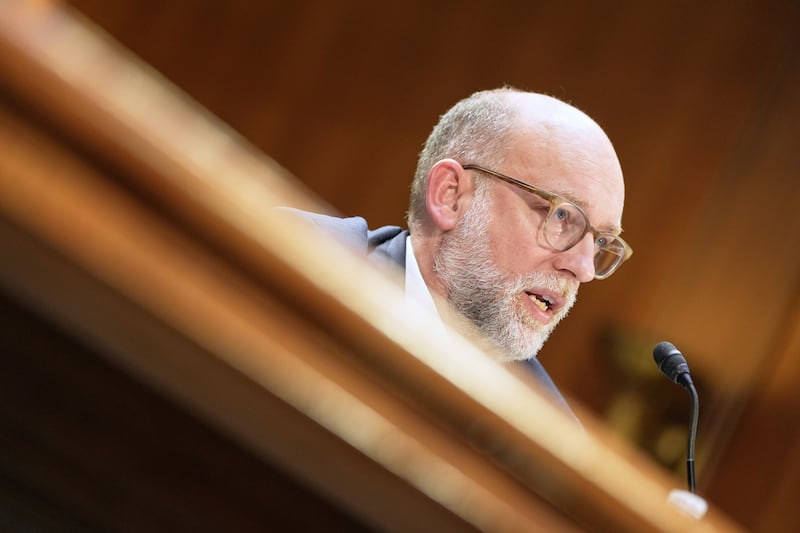WASHINGTON — The director of the Office of Management and Budget Russ Vought suggested on Thursday that the appropriations process should be “less bipartisan” despite Senate procedure essentially requiring lawmakers from both parties to work together in order to fund the government.
“The appropriations process has to be less bipartisan,” Vought told reporters at a Christian Science Monitor breakfast Thursday.
The current math in the Senate, however, would say otherwise.
In order to vote on most pieces of legislation, the Senate must first agree to end debate in a process known as invoking cloture. That procedure requires 60 votes, otherwise the legislation is filibustered and cannot be considered.
The current makeup of the Senate is 53 Republicans and 47 Democrats, meaning the GOP majority must rely on at least seven Democrats to buck party lines and vote to end the filibuster. As a result, the upcoming appropriations bills must have bipartisan support to avoid a shutdown — a reality that some Republicans say Vought does not understand or respect.
“I think he disrespects (the appropriations process),” Sen. Lisa Murkowski, R-Alaska, told reporters on Thursday. “I think he thinks that we are irrelevant. And I wish I had actually heard the speech, because, you know, again, take everything in context. But you have to admit that when you look at the quotes that are highlighted in the story this morning, it is pretty dismissive of the appropriations process.”
During the breakfast event, Vought told attendees that Republicans should focus on more rescissions requests such as the one passed by the Senate this week. That process only requires a simple majority, allowing Republicans to circumvent their Democratic colleagues to unilaterally cut government spending.
“It’s not going to keep me up at night, and I think will lead to better results, by having the appropriations process be a little bit partisan, and I don’t think it’s necessarily leading to a shutdown,” he added.
That prompted pushback from Senate Majority Leader John Thune, R-S.D., who said that strategy “runs contrary” to how Congress is designed to work.
“It’s going to take 60 to fund the government,” Thune told reporters on Thursday. “We plan to move [appropriations] bills that will have cooperation from the Democrats.”
But Democrats seem increasingly motivated not to cooperate, especially if Republicans continue with partisan spending bills. That could lead to a shutdown at the end of September if the two parties cannot finalize some sort of spending agreement — and both parties have made clear they’d place the blame on the other.
“The only way to avoid a government shutdown that Republicans are clearly trying to trigger is for there to be bipartisan discussions about reaching a spending agreement that meets the needs of the American people,” House Minority Leader Hakeem Jeffries, D-N.Y., told the Deseret News. “At this point, (Speaker) Mike Johnson continues to try to believe that they can operate in a partisan way or potentially reach a bipartisan agreement and then break it immediately thereafter with this reckless rescissions approach.”
But some Republicans have made the argument it’s possible to advance partisan agenda items while leaving room for bipartisan funding bills — claiming it would be on Democrats if they allow the government to shut down and leave federal agencies without funding.
“We’re coming off of a partisan moment. The reconciliation bills are always partisan,” Utah Rep. Blake Moore told the Deseret News in an interview. “There’s still a collaborative approach on appropriations. If Democrats aren’t willing to, they’re going to have to own a massive government shutdown. This will be on them.”


